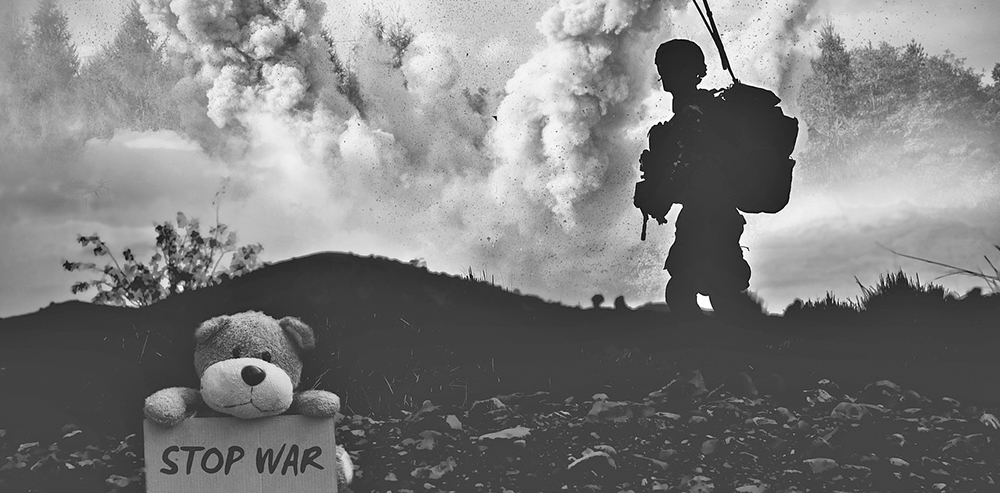
글 김세린
최근 보도된 북한의 청소년 사형 소식은 전 세계적으로 큰 충격을 주고 있다. 단순한 영화나 외국 문화 콘텐츠를 본 행위를 “반사회적 행동”으로 간주해 사형에 처했다는 주장은 현대 인권 의식에서 도저히 용납될 수 없는 행위이다. 이 사건은 청소년의 권리와 인간 존엄성이라는 보편적 가치를 무참히 짓밟은 사례로, 국제사회의 더 강력한 관심과 대응이 필요함을 보여준다.
사형 제도는 전 세계적으로 논란이 많은 문제이다. 그 중에서도 청소년 사형은 특히 국제사회가 금기시하는 영역이기도 하다. 유엔 아동권리협약(UN Convention on the Rights of the Child)은 18세 미만 청소년에 대한 사형을 금지하고 있음을 알 수 있다. 또한, 유엔 시민적 및 정치적 권리에 관한 국제규약(ICCPR)도 청소년 사형을 금지하고 있다.
북한은 이 두 협약에 모두 서명한 국가임에도, 청소년에 대한 극단적 처벌을 통해 국제사회의 약속을 정면으로 위반하고 있는 것이다. 적어도 내가 알고 있는 사실은 이렇다. 청소년은 신체적, 정신적으로 아직 성장 중이며, 교육과 보호를 통해 사회에 긍정적으로 기 여할 기회를 제공받아야 한다. 그들의 잘못된 행동이 있을지라도, 사형과 같은 극단적인 방법은 결코 정당화될 수 없기 때문이다.
북한의 사형제도는 정치적 통제와 공포 정치를 유지하기 위한 수단으로 활용되어 오고 있 다. 특히 이번 사례처럼 청소년에게까지 사형을 적용하는 것은 많은 문제를 시사하고 있다. 북한의 사형 집행은 개인의 잘못보다는 체제의 안정을 유지하기 위한 “공포 정치”의 일환으 로 보여 진다. 이번 청소년 사형 사건에서도 “외국 문화의 유입”이라는 이유를 들어 체제 순 응을 강요하고 있는 것이다. 또한, 청소년은 교육과 보호를 받을 권리가 있다. 설령 잘못된 행동이 있었다고 해도, 사형이 아닌 교육적 방법으로 해결해야 한다. 그러나 북한은 청소년의 미래를 통제와 처벌로 가로막고 있는 것이다. 북한은 국제사회와의 협력보다는 자신의 체제를 유지하기 위해 인권 탄압을 고집하고 있다. 이는 유엔과 국제 NGO의 인권 보고서에서도 지속적으로 지적되어 온 문제이기도 하다. 이러한 상황에서 국제사회가 어떻게 대응할 수 있을까? 대한민국 국민이라면 많은 분들이 한번은 고민해 보는 질문 사항일 것이다. 유엔과 국제 인권 단체는 북한의 청소년 사형과 같은 사례를 강력히 규탄해야 한다. 특히 아동권리협약과 같은 국제법을 위반한 점을 명확히 지적하며, 북한 정권에 인권 존중을 촉구해야 한다. 북한 내부에서의 인권 개선이 어렵다면, 탈북 청소년이나 국경 주변 지역의 청소년들에게 인권 교육과 지원을 제공하는 것이 중요하다. 그들이 미래의 변화를 주도할 세대이기 때문이다. 북한의 인권 탄압에 대한 책임을 묻기 위해 국제사회는 추가적인 외교적 압력과 제재를 논의할 필요가 있다. 제재가 주민들에게 직접적인 피해를 주지 않도록 세심한 접근이 요구되는 것이다.
이번 사건은 단순히 북한 내부의 문제를 넘어, 인권의 보편적 가치에 대해 다시 한번 생각하 게 만든다. 청소년은 미래를 이끌어 갈 세대이다. 그들의 행동이 단순히 체제의 논리에 의해 처벌받아서는 안 되며, 전 세계적으로 청소년의 권리는 더욱 보호받아야 마땅할 것이다. 사형이라는 극단적 처벌이 아닌, 교육과 회복의 기회를 제공하는 것이야 말로 인권의 본질에 부합하는 길이며 북한 청소년 사형 사건은 우리가 얼마나 인권 문제에 대해 국제적으로 더 많은 노력을 기울여야 하는지를 강하게 일깨우고 있다. 북한의 청소년 사형 사건은 전 세계적으로 규탄 받아 마땅하며 국제사회는 이를 방관하지 말고 강력한 대응과 지원을 통해 북한 청소년들에게 교육과 회복의 기회를 제공할 수 있는 환경을 만들어야 할 것이다. 우리는 모든 청소년이 어떤 체제 아래에서도 인간으로서의 존엄과 권리를 누릴 수 있는 세상을 위해 노력해야 하는 점은 잊지 않기를 소망한다.
The Dilemma of Juvenile Capital Punishment and Human Rights – The Path Forward Through the Case of North Korea
Recent reports regarding the execution of juveniles in North Korea have prompted significant international concern. Allegedly, individuals were sentenced to death for actions such as viewing foreign media or engaging in behavior deemed “socially deviant” by the state. Such acts are described as violations of the right to free expression and personal autonomy, which are fundamental aspects of modern human rights frameworks.
The death penalty remains a contentious issue globally, with the juvenile death penalty considered especially controversial. The UN Convention on the Rights of the Child (CRC), which North Korea ratified in 1990, explicitly prohibits the death penalty for individuals under 18 years of age. Similarly, the International Covenant on Civil and Political Rights(ICCPR), which North Korea also signed in 1981, forbids the execution of minors. Despite North Korea’s overt commitment to these agreements, its actions violate the terms of both treaties by imposing capital punishment on juveniles.
International law recognizes that juveniles, due to their ongoing physical and psychological development, should be given the opportunity to reform through education and social reintegration rather than subjected to severe punitive measures.
Research consistently shows that juvenile offenders possess a greater potential for rehabilitation compared to adults. Thus, imposing the death penalty on minors is widely considered disproportionate and unwarranted.
North Korea’s use of the death penalty, especially in juvenile cases, is often viewed as a tool for maintaining political control and instilling fear. In these cases, individuals are not necessarily executed for personal crimes but for perceived threats to the stability of the regime. Allegations that foreign media or cultural content have been associated with these executions suggest that the regime is attempting to enforce strict ideological conformity through extreme measures.
The issue is further complicated by North Korea’s reluctance to engage with international mechanisms that could facilitate human rights improvements. While there have been efforts by the United Nations and non-governmental organizations (NGOs) to address human rights abuses in North Korea, the regime has demonstrated little to no interest in cooperating with such initiatives.
Given the gravity of these violations, there are several potential avenues for international response. The United Nations and other international human rights organizations should continue to condemn the juvenile executions and press for compliance with the CRC and ICCPR. Additionally, targeted diplomatic measures, such as sanctions aimed at North Korea’s leadership, could serve as a viable means to hold the regime accountable, although such actions must be carefully designed to avoid extending unintended harm to the general population.
If internal reforms remain unlikely in the near future, providing human rights education and support to North Korean defectors, particularly the youth, could foster long-term societal change. These individuals may play a crucial role in shaping North Korea’s future by advocating for human rights and contributing to the region’s eventual political transformation.
The execution of juveniles in North Korea constitutes a clear violation of international human rights standards. The international community must remain steadfast in its commitment to holding government officials in North Korea accountable and ensuring that future generations are not subjected to extreme forms of punishment. Efforts should focus on promoting education, rehabilitation, and respect for the dignity of minors, in line with global human rights norms.



